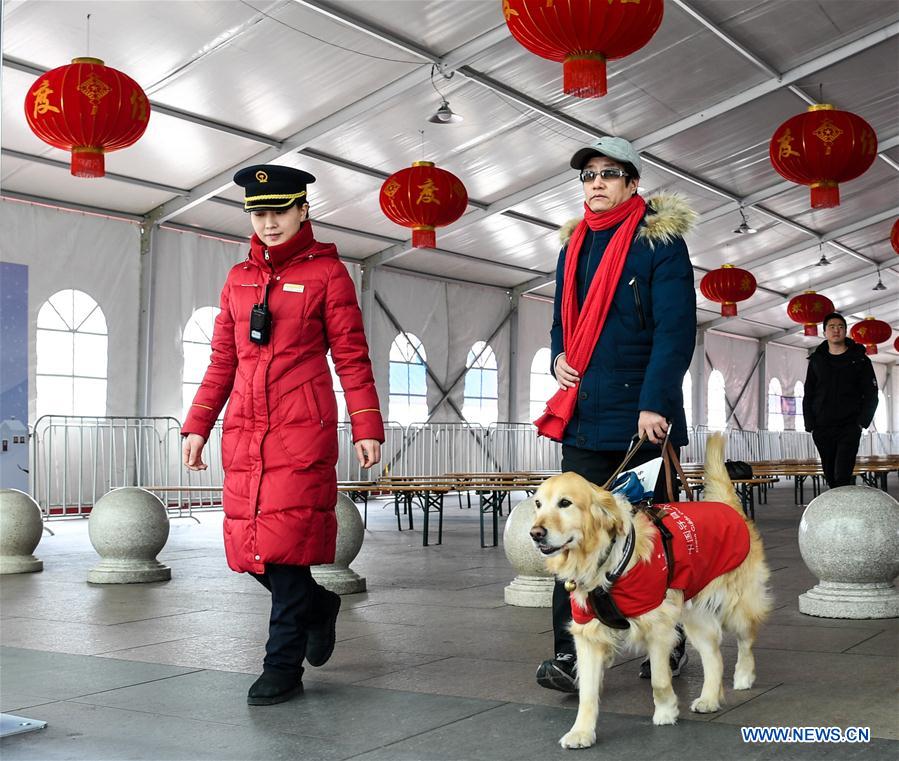
A guide dog helps its owner with eye disease during the Spring Festival travel season in Suzhou north station in Suzhou, east China's Jiangsu Province, Jan. 24, 2019. (Xinhua/Li Bo)
NANJING, Jan. 28 (Xinhua) -- Little Q, a golden retriever in a red vest, embarked on a 1,300-km journey with his master during the Spring Festival travel rush.
"Little Q is my eyes and I can rest assured with him," said Su Bo, the dog's owner and a man with visual impairment.
With the help of Little Q and staff in the railway station, he made it on to high-speed train G1956 Sunday linking Suzhou, a city in east China's Jiangsu Province, with his hometown Taiyuan, capital of north China's Shanxi Province.
The travel rush began 15 days ahead of the Spring Festival (Chinese Lunar New Year), which falls on Feb. 5 this year. Nearly 3 billion trips will be made on China's transport system.
A steward led Su and Little Q to a seat near the bathroom and offered him a service bell. When he pressed a button on the device, the train crew would arrive in a minute.
Designed for people with disabilities, seniors and children traveling alone, the service bell was put into use by the Nanjing railway authorities for a pilot run this Spring Festival.
"There is a QR code on each table. Passengers can scan it to order food online. But it may not be helpful for seniors or people with disabilities, so we launched this device," said Zheng Ying, head of the train crew.
China has over 17 million blind and visually-impaired people. Many are restricted to home due to the inconvenience of going out.
"I appreciate their kindness and considerate service," said Su, a columnist for a magazine in Suzhou.
He was diagnosed with an eye disease at the age of 30 and lost his eyesight. In 2013, he got the two-year-old guide dog.
It was the first time for Su, accompanied by his guide dog, to go home alone. It was a tedious journey for Little Q, who lay silently under the table for most of the journey unless his master needed help.
Su fed him before the train started and offered him some water on the nine-hour trip.
"I have to control his food intake. It's a problem if the dog needs to go pee or poop on the train," Su said.
According to Chinese regulations, passengers are banned from carrying animals on the trains. However, the China Railway Corporation and the China Disabled Persons' Federation formulated a regulation in 2015 allowing visually impaired people to take guide dogs on trains.
When Little Q appeared on the high-speed train, passengers were curious. Some children even tried to pat or feed him. The train crew explained that they must not disturb the dog when it was doing its work.
"I feel warmhearted as people with disabilities can be respected and join the Spring Festival travel rush with us to go home," said passenger Wang Jun.
There is one year left before Little Q retires. Su hopes to accompany his friend in his later life. "Little Q has been my guide for years. When we arrive in Taiyuan, I want to become his tour guide and introduce my hometown to him."















